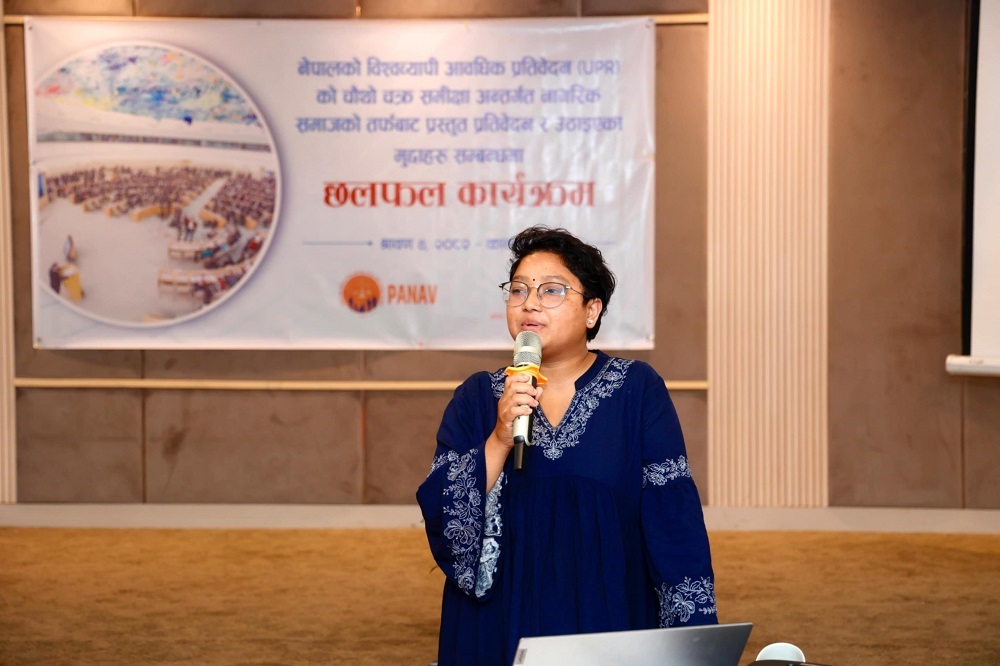
Kathmandu – Nepal has been urged to implement the commitments it made under the Universal Periodic Review (UPR) mechanism of the United Nations. During an interaction program organized on Sunday by the Forum for Women, Law, and Development (FWLD) with journalists, the discussion focused on Nepal’s promises related to the rights of children and violence against women and girls.
As part of the Fourth Cycle of the UPR review, FWLD presented civil society’s recommendations through advocates Dipesh Shrestha and Rozina Shrestha.
Among the key suggestions presented were the need to maintain the minimum legal age for marriage, avoid criminalizing children involved in child marriage, and establish support systems for children affected by such marriages.
Advocate Dipesh Shrestha provided a detailed explanation of what the UPR is, its functions, and how the review mechanism operates. He emphasized that the UPR assesses the human rights situation in all 192 UN member states, offers recommendations, and monitors the implementation of previous commitments.
The next UPR review of Nepal is scheduled for January 26, 2026. Civil society organizations plan to recommend that the government enact laws to protect children’s identity and provide legal safeguards to those affected by violence.
Advocate Rozina Shrestha gave a presentation focused on violence against women and children. She emphasized the need for a consolidated umbrella law to combat gender-based violence, the urgency of enacting separate legislation against human trafficking, and legal responses to harmful practices, trafficking, and sex work.
Despite the National Human Rights Commission reporting around 40,300 victims, Advocate Shrestha highlighted that in reality, over 1.9 million individuals are affected, according to civil society data. She criticized the government for not implementing recommendations from the third cycle of the UPR, and for failing to establish standard procedures for victim identification, rescue, and reintegration. Only 10 rehabilitation centers have been set up across the country, which she noted as grossly inadequate.
She also pointed out that the Human Trafficking and Transportation (Control) Act, 2007, and the Foreign Employment Act, 2007, have not yet been amended in line with the Palermo Protocol, despite being in the process of implementation. She emphasized the need for laws that address labor trafficking within Nepal from abroad.
Advocate Shrestha further argued for the decriminalization of consensual sex work, stressing that it should be legally distinguished from human trafficking. She called for legal protections for sex workers against violence and exploitation, and for alternative livelihood options for those wishing to exit the profession. Additionally, she recommended replacing stigmatizing terms like “prostitution” and “prostitute” with “sex work” and “sex worker” in legal and policy discourse.